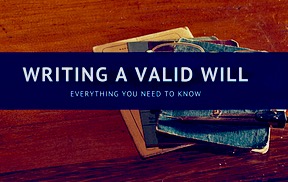
Seepa v Seepa 2017 ONSC 5368 revisited the question of whether a will is recognized as valid by a grant of probate.
The Court followed Neuberger v. York, 2016 ONCA 191:
a. The court’s jurisdiction in probate is inquisitorial because the court’s decision does more than just bind the parties to the dispute. If probate is granted, a will is recognized in rem (or for the whole world). In carrying out its inquisition, the court has a special responsibility to the testator who cannot be present to give voice to his or her true intentions. (See para. 68);
b. A person with a financial interest in an estate may ask the court to probate a will. He or she then has the burden to prove that the will was duly signed, that the testator had capacity when he or she signed it, and that the testator had knowledge of the contents of the will and approved them. (See para. 77);
c. Upon proof that the testator duly signed a will, the law will assume that the other required facts are proven unless someone opposing probate adduces evidence that, if accepted, would undermine the testator’s knowledge, approval, or capacity. This type of evidence is referred to as “suspicious circumstances.” (See para. 77);
d. If suspicious circumstances exist, then the full legal burden reverts to those supporting probate to prove that testator’s knowledge, approval, and capacity. By contrast, those who allege that a will is invalid due to the exercise of undue influence have the burden of proof of that allegation throughout. (See para. 78);
e. The court’s decision to grant probate is discretionary. So too is the manner in which the decision will be made. (See para. 87);
24 The court has discretion as to the manner or process for the proof of a will. The first issue is whether the court will allow a proponent of a will to prove the necessary facts without a formal hearing or whether the court will require a proponent of a will to engage in a full, formal litigation process to prove the necessary facts. The process for formally proving the necessary facts to obtain probate is referred to as “proof in solemn form.”
25 The court is empowered and generally will accept proof of probate summarily, without an oral hearing, unless someone with a financial interest asks the court to require proof in solemn form under Rules 75.01 and 75.06 of the Rules of Civil Procedure, RRO 1990, Reg. 194.
26 At para. 88 of Neuberger, Gillese J.A. discusses the decision whether to require proof in solemn form as follows:
In my view, an Interested Person must meet some minimal evidentiary threshold before a court will accede to a request that a testamentary instrument be proved. In the absence of some minimal evidentiary threshold, estates would necessarily be exposed to needless expense and litigation. In the case of small estates, this could conceivably deplete the estate. Furthermore, it would be unfair to require an estate trustee to defend a testamentary instrument simply because a disgruntled relative or other potential beneficiary makes a request for proof in solemn form. (Emphasis added)




